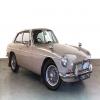| How about a few “not a lot of people know thats” 21:12 - Dec 17 with 7872 views | colinallcars |
True ones please.
Samuel Goldwyn of Metro Goldwyn Mayer films is offically named Samuel Goldfish.
When he emigrated to the US from Poland, his actual name was Schmuel Goldfisz. The immigration officail misheard it as Samuel Goldfish which he remained for some years.
Notta Lotta People Know That. |  | | |  |
| How about a few “not a lot of people know thats” on 00:23 - Dec 20 with 217 views | NorthLondonR |
| How about a few “not a lot of people know thats” on 06:36 - Dec 18 by Wilkinswatercarrier |
The fear of long words is called 'Hippopotomonstrosesquippedal'.
First used by Roman poet Horace in the 1st century BC to criticse writers with a love of unreasonably long words.
Top marks to anyone who can fit that word into a QPR chant/song. |
If this thread had been discussed in the early 2000s, that word could've formed the first verse of a dedicated chant for the dieing embers of a Matthew Rose contract, inspired by the Manic Street Preachers hit "Roses in the hospital'...
"Hippo-potomonstrosesquippe-dal..
And Rose's in the hospital until around A-A-april"
Maybe not. |  | |  |
| How about a few “not a lot of people know thats” on 01:20 - Dec 20 with 167 views | Metallica_Hoop |
Forgot to press reply.
[Post edited 20 Dec 1:23]
|  |
| Beer and Beef has made us what we are - The Prince Regent |
|  |
| How about a few “not a lot of people know thats” on 01:23 - Dec 20 with 163 views | Metallica_Hoop |
| How about a few “not a lot of people know thats” on 23:07 - Dec 19 by johann28 |
The Electric cab fleet of the 1890s were nicknamed "Hummingbirds" due to the strange humming noise they made. Electric vehicles had a number of advantages over their early-1900s competitors as they didn't have the vibration, smell, and noise associated with petrol-powered cars and did not require gear changes. The cars were also preferred because they did not require a manual effort to start, as did petrol cars which featured a hand crank to start the engine.
After enjoying success at the beginning of the 20th century, the electric car began to lose its position in the car market. By the 1920s an improved road infrastructure improved travel times, creating a need for vehicles with a greater range than that offered by electric cars. Worldwide discoveries of large petroleum reserves led to the wide availability of affordable petrol, making petrol-powered cars cheaper to operate over long distances. Electric cars were limited to urban use by their slow speed (no more than 15–20 mph) and low range (30–40 miles), and petrol cars were now able to travel farther and faster than equivalent electrics.
Petrol cars also overcame much of their negatives compared to electrics, in several areas. The invention of the electric starter in 1912 eliminated the need of a hand starting crank, while the invention of the muffler significantly reduced the noise levels. But it was the initiation of mass production of cheap gas-powered vehicles by Henry Ford that was crucial (by contrast, the price of similar electric vehicles continued to rise; by 1912, an electric car sold for almost double the price of a petrol car). Most electric car makers stopped production at some point in the 1910s. [Post edited 19 Dec 23:09]
|
https://en.wikipedia.org/wiki/Bersey_Electric_Cab |  |
| Beer and Beef has made us what we are - The Prince Regent |
|  |
| |